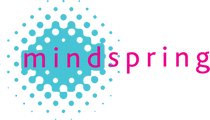Crafting a Strengths Introduction
Speaking at Cheltenham’s Women in Business network on ‘Building your strengths in business’ (thank you Elaine Warwicker), a fascinating, and vulnerable, conversation emerged about crafting a personal ‘Strengths Introduction’. This ‘introduction’ is likely to be just a few lines but should feel ‘just like you at your best’. Think of it like your own personal strengths profile - invaluable and can be flexed to suit multiple opportunities. Use it to introducte yourself at the front of your CV; sell yourself to a potential client or answer those hard questions, “Why you?” or “Tell me about yourself?”.
Our strengths are so much more than a psychometric, or a handy ‘instrument’ in leadership development. Once we truly understand what our core strengths are, we get to grips with our self-motivation, our personal resilience and how we operate at our best. This is critical to our psychological well-being - particularly if in the last six months you've experienced so much change you might have lost sight of what you’re great at.
Below I’ve laid out four ways in which you can craft your Strengths Introduction. You can do it swiftly and just address one way or do a deep dive on your self-awareness and address all four!
- Psychometrics
If you’re crafting your strengths profile for the first time, my advice is to start here. My preferred strengths psychometric is the Values in Action, which you can do for free at www.viacharacter.org. I like the down to earth humanity of the character strengths. When I do the Gallup Strengths Finder, my top 3 strengths are Strategist, Innovator and Woo. When I do the VIA, my love of learning, my curiosity and a fascination with (and love for) other people comes to the fore. It feels like me. (You can also buy strengths cards at our shop, www.mindspring.uk.com).
- Self-awareness
Here are my top ten questions to explore your personal strengths:
- What are you proud of in your life?
- What are you doing when you feel energetic and engaged?
- What do you ‘love to’ do, rather than ‘have to’ do?
- What are you doing when you feel in ‘flow’ (the sensation that you’re immersed in something and time drops away)?
- What would you do if you weren’t being paid for it?
- What small things do you do that you find extremely satisfying? What strengths would this point to?
- What would your favourite person in the world say your top 3 strengths are?
- What would your colleagues admire about you?
- What are you complimented on?
- Consider your achievements (big and small). What personal strengths lie beneath these achievements?
- Feedback from other people
I have a problem with most 360 reports. People flick over the ‘Strengths’, get to the Development/Weakness areas and dwell here on who wrote what they wrote, why they’re wrong and what the issue is with that person! I exaggerate (a little) but you understand. You can read Marcus Buckingham’s brilliant article on this called The Feedback Fallacy at www.hbr.org.
Really useful feedback tells you what you are like at your best AND gives you examples. So, ask people for exactly this. Ask up to 20 people (it doesn't matter if it’s much less) – business colleagues, friends and family. All you are asking for is for them to email you three stories, illustrating you at your best. That’s it. And this will be enough to get a really good handle on other people’s perspectives on your strengths, and their vocabulary for describing you – which goes beyond any psychometric. And there’s great scientific evidence about this approach, formally called the Reflected Best Self Exercise, which you can read further here: https://positiveorgs.bus.umich.edu/cpo-tools/rbse/.
- Resilience and New Learning
The last six months have offered us a wealth of learning about our resilience and our strengths. We certainly didn't want this learning, but it is useful to take stock and heed it. Here are some questions you can consider, that will add to your personal strengths learning:
- What new strengths have materialised in the last four months?
- What new ways of working have become evident that you can recognise and retain?
- What positive, attitudinal shifts and beliefs have become apparent?
- What feels exciting? What’s worth getting out of bed for now?

